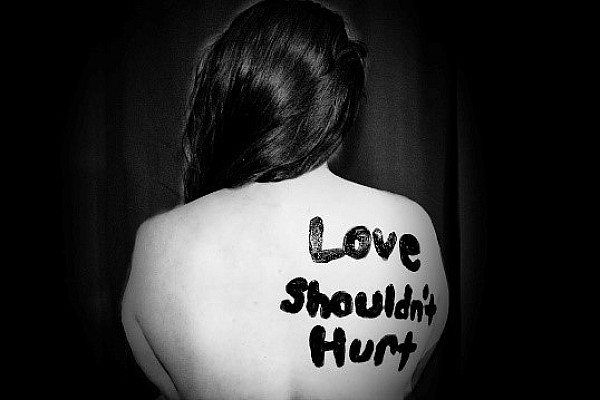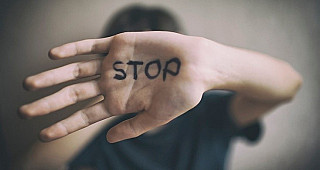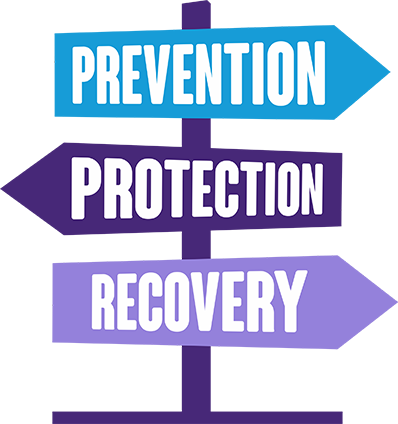What is Domestic Abuse?

The Home Office 2021 definition of domestic abuse now states:
Behaviour of a person (“A”) towards another person (“B”) is “domestic abuse” if A and B are each aged 16 or over and are personally connected* to each other, and the behaviour is abusive.
Behaviour is “abusive” if it consists of any of the following:
- physical or sexual abuse
- violent or threatening behaviour
- controlling or coercive behaviour
- economic abuse
- psychological, emotional or other abuse
It does not matter whether the behaviour consists of a single incident or a course of conduct.
*Personally connected definition: They are, or have been, married; civil partners; have agreed to marry one another; have entered into a civil partnership agreement; are or have been in an intimate personal relationship; they have or have had a parental relationship in relation to the same child; or are relatives.
Controlling behaviour is: a range of acts designed to make a person subordinate and/or dependent by isolating them from sources of support, exploiting their resources and capacities for personal gain, depriving them of the means needed for independence, resistance and escape and regulating their everyday behaviour.
Coercive behaviour is: an act or a pattern of acts of assault, threats, humiliation and intimidation or other abuse that is used to harm, punish, or frighten their victim.
Statistics
 Domestic abuse is a widespread problem in the UK.
Domestic abuse is a widespread problem in the UK.
- 1 in 4 women will experience domestic abuse in their lifetime, with 57% subjected to repeat victimisation
- 2 women a week are killed by a current or former partner
- 1 in 6 men will experience domestic abuse in their lifetime
- One incident of domestic violence is reported to the police every minute
- Research has shown that it can take a victim an average of 35 incidents of abuse before reporting it to the police.
Forms of domestic abuse
Domestic abuse can take on various forms and can occur simultaneously. Click any of the forms below to read more about each.
Why does domestic abuse happen?
All forms of domestic abuse stem come from the abuser’s desire for power and control over the person they are abusing.
There is no one specific cause of domestic abuse, as it can happen for a variety of reasons and is often the result of multiple factors. But none of these factors excuses or justify domestic abuse, and the responsibility for the abuse always lies with the abuser. Victims of domestic abuse are never to blame for the abuse they experience.
Myths & Truths
There are many myths and misconceptions about domestic abuse that can prevent victims from seeking help or receiving the support they need. Here are some common myths and the corresponding truths about domestic abuse:
Myth: Domestic abuse only happens to women.
Truth: Domestic abuse can happen to anyone, regardless of gender, age, race, or sexual orientation.
Myth: Domestic abuse only involves physical violence.
Truth: Domestic abuse can take many forms, including emotional, financial, sexual, and psychological abuse. These forms of abuse can be just as damaging as physical violence.
Myth: Domestic abuse only happens in poor or uneducated families.
Truth: Domestic abuse can happen in any family or relationship, regardless of socioeconomic status, education level, or cultural background.
Myth: Domestic abuse only happens in romantic relationships.
Truth: Domestic abuse can occur in any type of relationship, including parent-child relationships, sibling relationships, and relationships with other family members.
Myth: Domestic abuse is caused by the victim's behaviour.
Truth: Domestic abuse is never the fault of the victim. Abusers use abuse as a means of control and power, and victims often have limited options for escaping the abuse.
Myth: Domestic abuse only happens when the victim provokes the abuser.
Truth: Domestic abuse is never justified, and no one deserves to be abused or mistreated. Abusers may use any excuse to justify their behaviour, but it is important to remember that the abuser is responsible for their actions.
Myth: Domestic abuse is a private matter and should be kept within the family.
Truth: Domestic abuse is a serious crime and should be reported to the authorities. Victims of domestic abuse may need medical attention, legal assistance, and other forms of support, and keeping the abuse a secret can prevent them from getting the help they need.
Myth: If it was so bad they would leave.
Truth: Staying in the abusive situation does not indicate that it is 'not that bad’ or that the victim bears any responsibility for the abuse. Victims of abuse may find it hard to leave the abusive relationship for many reasons. They are never responsible for the abuse, only the abuser is.
Leaving can be dangerous as the abuser may threaten or harm the victim, children or pets. Victims may face practical barriers like lack of money or housing options, and may not know where to turn for help. The abuser may have eroded the victim's self-worth and confidence, making them feel exhausted and trapped. Victims may feel ashamed and believe the abuse is their fault, especially if the abuser has gaslighted them. Some victims may worry about bringing shame to their families and community if they leave. Victims may hope the abuser will change and the relationship will improve, especially if there were good times in the past.
Myth: Perpetrators of domestic abuse “lose control” of their temper. “I saw red and just lost it”.
Truth: Domestic abuse is not about losing control, but about exerting power and control. Perpetrators may use anger as an excuse for their behaviour, but non-abusive individuals feel anger without resorting to violence. Perpetrators of domestic abuse usually target their victims and keep the abuse hidden from others. They may cause injuries in areas that are not visible or leave few marks.
Myth: Alcohol and drugs are to blame
Truth: Although many abusers also abuse alcohol and/or drugs, this is not the underlying cause of the abuse. If alcohol and drugs caused abuse then everyone who drinks alcohol and used drugs would be violent and abusive and this is not the case. Intoxication is however an aggravating factor, it may make existing abuse worse, or be a catalyst for an attack, but it does not cause or excuse domestic abuse.
Myth: Stress or Mental ill health cause domestic abuse.
Truth: Similar to drugs and alcohol, stress and mental health may play a part in triggering incidences of abuse, but they are not an underlying cause of abuse and certainly not an excuse for violence and abuse. Stress and mental ill health affect hundreds of thousands of adults every year but most of these adults are not perpetrators of domestic abuse.
It is important to understand the truth about domestic abuse and to offer support and resources to those who may be experiencing abuse.

